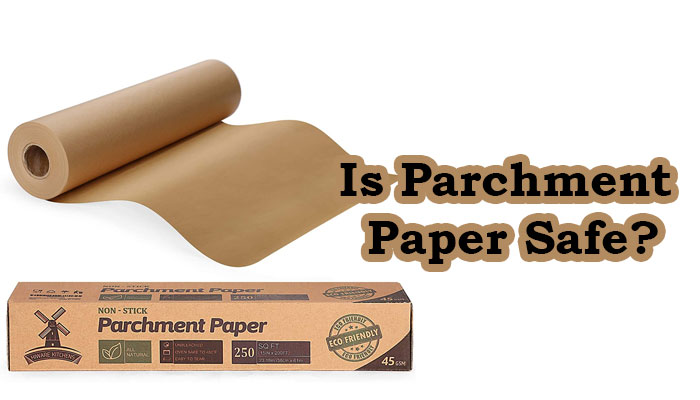Can you eat imitation crab while pregnant? What you need to know
- By Infoik
- 21 Apr, 2022
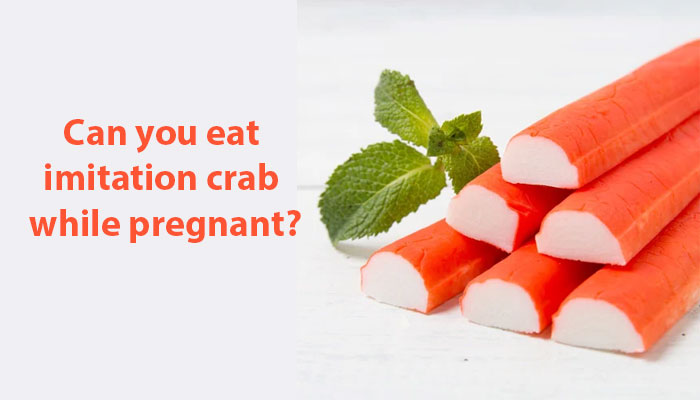
Can you eat imitation crab while pregnant?
Imitation crab is a popular seafood choice, especially among pregnant women. But can you eat imitation crab while pregnant? And what are the risks associated with doing so? In this blog post, we’ll take a closer look at the potential dangers of eating imitation crab during pregnancy and some tips for ensuring that you get the nutrients your body needs while pregnant. So read on to learn more!
What is imitation crab and where does it come from?
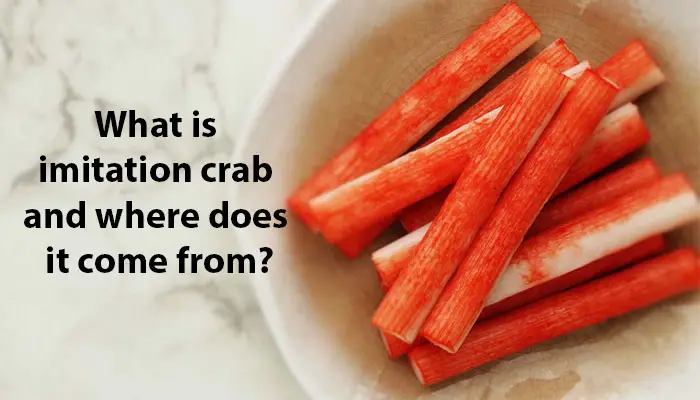
Imitation crab, also called surimi, is a type of seafood made from raw fish that has been minced and shaped into crab-like pieces. It’s typically made from whitefish like pollock or tilapia, though it can also be made from other types of fish. Imitation crab is famous in Japan, where it was first created, and is also widely consumed in other parts of Asia and the United States.
Imitation crab is often used as a cheaper alternative to real crab meat. Sometimes we can find it is used in sushi rolls. It’s also a healthier option because it’s lower in fat and calories. However, imitation crab does not have the same nutritional value as real crab meat. It’s also important to note that imitation crab is often made with fillers and preservatives, which can be harmful to your health.
Is imitation crab safe to eat during pregnancy?
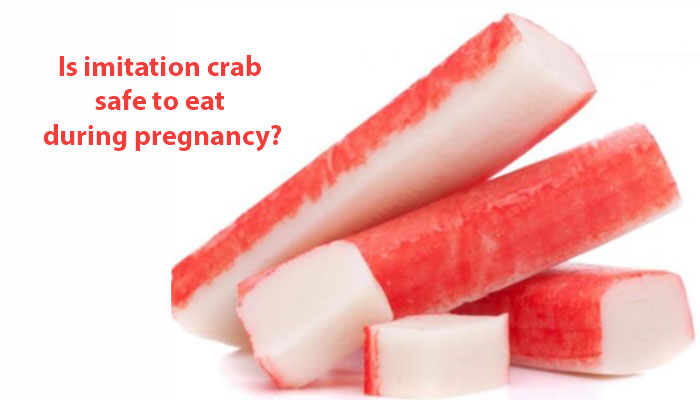
There is no definitive answer to this question. While there is no evidence that eating imitation crab meat during pregnancy is harmful to you or your baby, some risks are considered. For example, imitation crab meat is often made with fillers and preservatives, which can be detrimental to your health. In addition, imitation crab meat is typically lower in nutrients than real crab meat. So if you’re pregnant and considering eating imitation crab, be sure to talk to your doctor first.
Additionally, check the label of any imitation crab meat you purchase to make sure it’s safe for pregnant women to consume. Some brands of imitation crab meat may contain mercury, which can be harmful to you and your baby.
What are the benefits of eating imitation crab while pregnant?
Imitation crab meat is often seen as a healthier option for pregnant women because it is lower in fat and calories. Additionally, imitation crab meat is typically lower in mercury than other types of seafood. So if you’re pregnant and looking for a healthy seafood option, check the label of any imitation crab meat you purchase to ensure it’s safe for pregnant women to consume.
What are the risks of eating imitation crab during pregnancy?
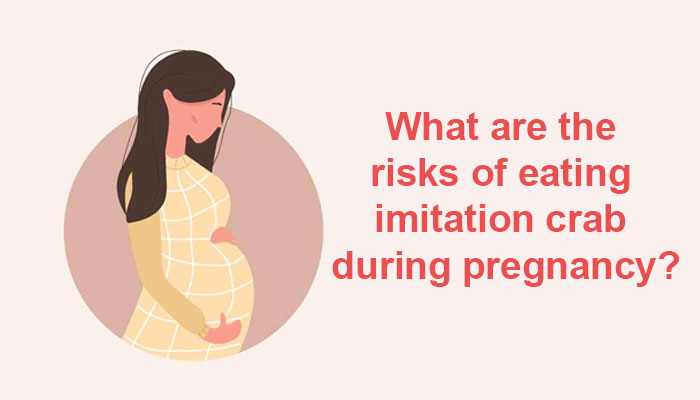
As mentioned above, some risks are associated with eating imitation crab during pregnancy. For example, imitation crab meat is often made with fillers and preservatives, which can be harmful to your health. In addition, imitation crab meat is typically lower in nutrients than real crab meat. So if you’re pregnant and considering eating imitation crab, be sure to talk to your doctor first.
How much imitation crab should you eat while pregnant?
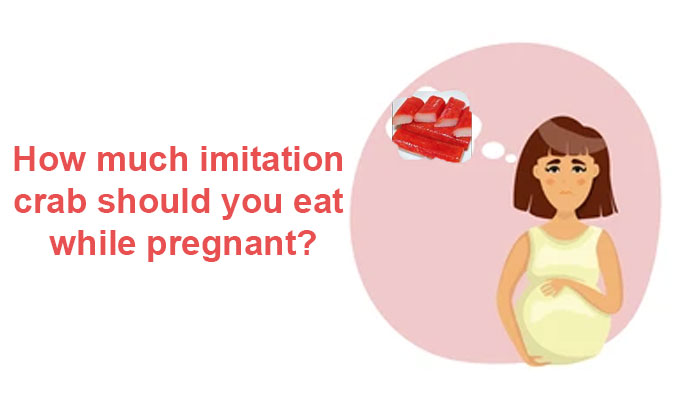
There is no definitive answer to this question. However, it’s generally recommended that pregnant women eat no more than 12 ounces of seafood per week. So if you’re pregnant and considering eating imitation crab, be sure to talk to your doctor first and make sure that it’s safe for you to do so.
Pregnant women should also check the label of any imitation crab meat they purchase to make sure it’s safe for pregnant women to consume. Some brands of imitation crab meat may contain mercury, which can be harmful to you and your unborn baby.
Are there any risks associated with eating imitation crab while pregnant?
Yes, there are some risks associated with eating imitation crab during pregnancy. For example, imitation crab meat is often made with fillers and preservatives, which can be harmful to your health. In addition, imitation crab meat is typically lower in nutrients than real crab meat. So if you’re pregnant and considering eating imitation crab, be sure to talk to your doctor first.
Additionally, check the label of any imitation crab meat you purchase to make sure it’s safe for pregnant women to consume. Some brands of imitation crab meat may contain mercury, which can be harmful to you and your baby.
What are some other seafood options that are safe to eat during pregnancy?
Many other seafood options are safe to eat during pregnancy. Some include salmon, shrimp, canned light tuna, tilapia, catfish, and cod. Pregnant women should eat at least 12 ounces of seafood per week. So if you’re pregnant and looking for a healthy seafood option, be sure to check out some of these other options.
FAQs:
Is imitation crab cooked pregnant?
Crab is very safe seafood to eat during pregnancy, as it is fresh water and does not contain harmful chemicals or parasites. In addition, the makers of imitation crab are pretty careful about how the meat is handled and produced. As a result, the only species that looks and feels like the real deal is Japonica. This means that you feel confident that your baby is getting a perfectly nutritious meal from the jar.
Can I eat California rolls while pregnant?
California rolls are made with fermented rice and vegetables, and as with most foods associated with pregnancy, you should make sure that you are up-to-date on your prenatal health and nutrition. You should also avoid drinking too much alcohol while pregnant. So while you can still enjoy your favorite California rolls during pregnancy, you should limit your intake to once every two weeks.
Can you get listeria from imitation crab?
Listeriosis is an infection that can be passed between humans through contaminated food or water. Listeria monocytogenes is a typical strain found in soil, water, and food. You can protect yourself and your baby from listeria by washing your hands thoroughly with soap and water before and after handling food.
Is it OK to eat crab while pregnant?
Crabs (crab leg, crab rolls, raw crab, fresh crab) are safe to eat during pregnancy; however, pregnant women should be careful to avoid overeating them. Tofu is a good source of protein for pregnant women, as are nuts and seeds. Although you can consume imitation crab, it is not recommended. The shellfish has a large proportion of fat that is not good for your body and can be harmful to your baby.
Are our crab cakes safe during pregnancy?
Crab cakes are made from crab meat and are a safe and easy way to consume crab. They are made by steaming the heart and adding seasonings like garlic, ginger, soy sauce, lemon, and wine. The final step is to bake the crab cakes in the oven. As with most foods, you should eat your crab cakes in reasonable amounts during your pregnancy, once every two weeks.
What food should not be eaten during pregnancy?
It is essential to stay hydrated during pregnancy, but thirst is not a good indicator that you need to drink water. Cravings for certain foods are usual, and you may even have them when you are not pregnant; however, if you feel an urge to eat something you shouldn’t, call your doctor.
You are drinking grapefruit juice while pregnant can cause acidity in your baby’s stomach, leading to a rare condition called neonatal tetany. The chance of this happening is meager, but you should contact your doctor if you notice your baby having grand mal seizures or becoming unresponsive.
Can I eat shrimp while pregnant?
Shrimp is a good source of protein and is one of the few kinds of seafood that contain valuable minerals. You should, however, be careful when consuming it while you are pregnant. The reason why is that a pregnant woman’s body makes more toxins than a non-pregnant person’s body.
Toxins from the body get passed into the fetus and can lead to congenital ileus. This means that your baby does not get enough nutrients from the mother’s diet and is more likely to die in the womb. So although you should avoid eating raw shrimp while pregnant, you can still enjoy it with the shell on.
Can you eat a crunchy roll while pregnant?
A crunchy roll is made from rice and seaweed and is a safe and easy way to consume crab. It is also a good source of protein and minerals. You should, however, be careful when consuming it while you are pregnant. The reason why is because a pregnant woman’s body makes more toxins than a non-pregnant person’s body.
Can I eat sushi while pregnant?
Sushi is made from fish and is a good source of protein. It is also shallow in calories and fat. The flavor is robust, and the texture is well-balanced. You should, however, be careful when consuming it while you are pregnant.
The reason why is because a pregnant woman’s body makes more toxins than a non-pregnant person’s body. Toxins from the body get passed into the fetus and can lead to congenital ileus. This means that your baby does not get enough nutrients from the mother’s diet and is more likely to die in the womb. So although you should avoid eating raw shrimp while pregnant, you can still enjoy it with the shell on.
What is an imitation crab made of?
Crab is very safe seafood to eat during pregnancy, as it is fresh water and does not contain harmful chemicals or parasites. The makers of imitation crab are cautious about how the meat is handled and produced. The only species that looks and feels like the real deal is Japonica. This means that you feel confident that your baby is getting a perfectly nutritious meal from the jar. In fact, unlike other shellfish, which have high iron content, crab is a good source of vitamin A and zinc.
The conclusion: can you eat imitation crab while pregnant
You can eat imitation crab while pregnant, but check with your doctor first. While it is a good source of protein and minerals, it is essential to be careful when consuming it, as a pregnant woman’s body can produce more toxins than a non-pregnant person’s body. If you are unsure, always err on the side of caution and avoid eating raw or undercooked imitation crab.





